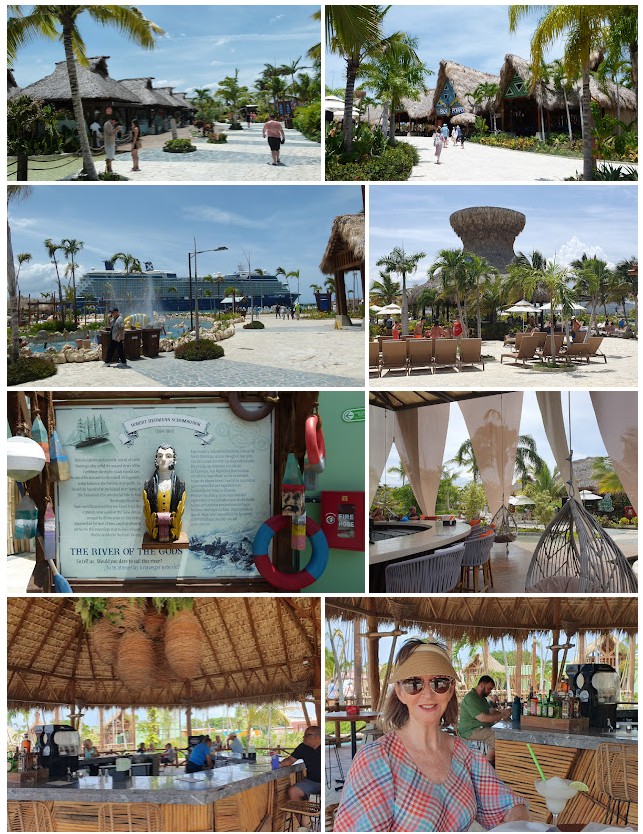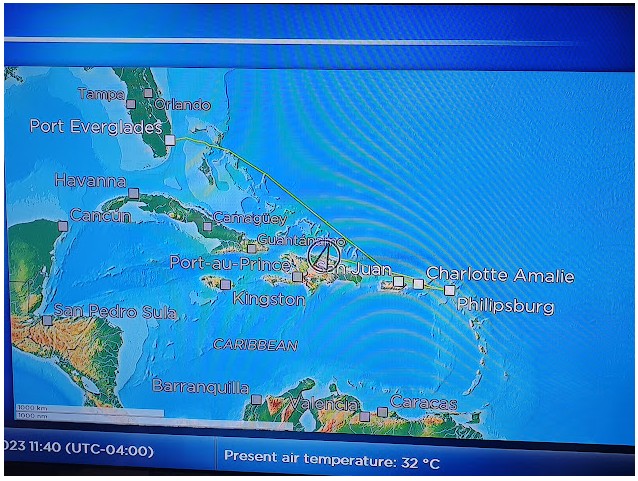Puerto Plata in the Dominican Republic was our last port before returning to Fort Lauderdale. The port has been setup as a mini-resort, with bars, water sports and retail outlets, designed to separate cruise-ship passengers from their money.
There is a local fort, Fortaleza de San Felipe, that we though might be worth a look, perhaps of historical interest and more than twenty years old. But alas, as it was nearly 2 kilometres (an almost 5 minute drive) away, it would cost us $120, each, to be taken there.
We considered walking but the cocktail bars beaconed. Wi-Fi again.

The Dominican Republic shares the island of Hispaniola with the country of Haiti. On the UN's Human Development Index, Haiti ranked 163 out of 191 countries in 2021, one of the poorest countries on earth. The Dominican Republic, on the other hand, has one of the highest rankings in the Latin America and Caribbean (LAC) region. Same island, different cultures. So, not all cultures are equally beneficial to their possessors.
***
And so it was another relaxing sea day - back to Port Everglades, Fort Lauderdale

Our next stop would be Boston
